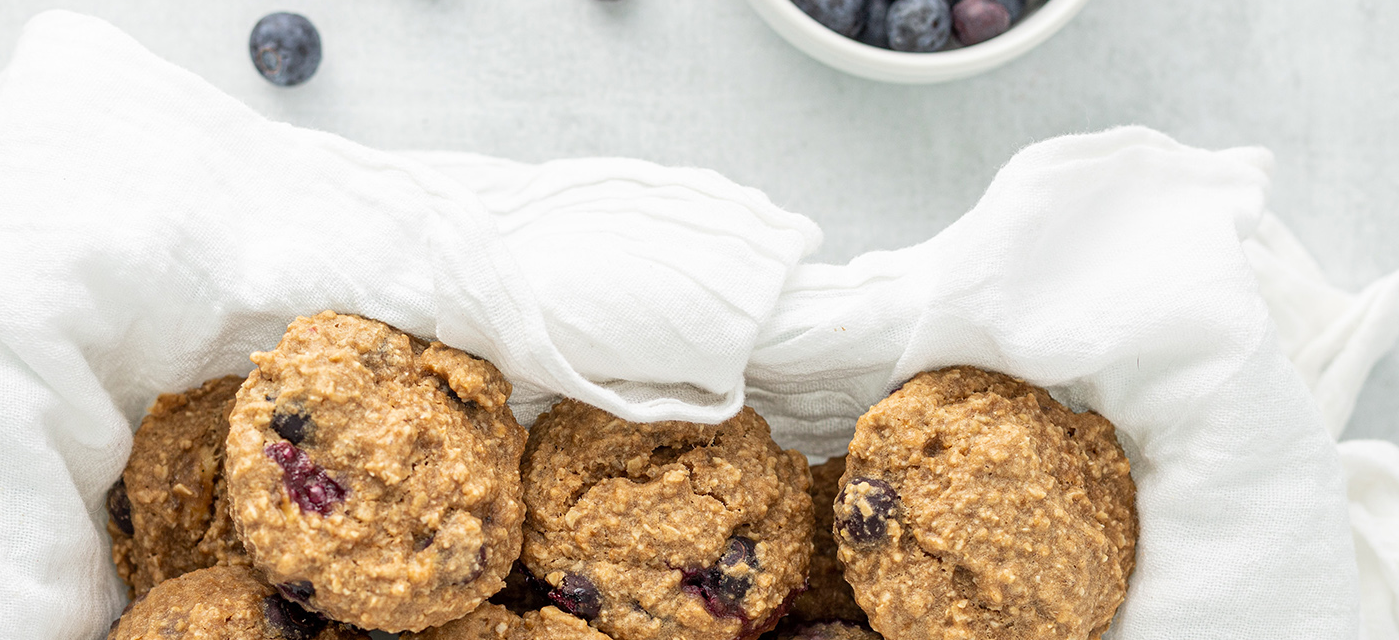
Hemp Protein Powder: A Complete Guide
Welcome to our comprehensive guide to hemp protein. It includes everything you need to know about hemp and hemp protein. Read on to see if hemp protein powder is right for your needs and goals. And learn how hemp can help build and maintain a healthy diet and lifestyle.
Hemp protein powder is just one of many varieties of plant-based protein. Hemp is packed full of protein, fiber, minerals, all nine essential amino acids, and omega fatty acids. It’s also classified as a superfood. Plus, it’s considered to be one of the most sustainable crops on Earth.
In recent years, many bodybuilders, powerlifters, athletes, and everyday people have made the switch from whey to hemp protein. Loved by meat and plant eaters alike, hemp protein powder is an allergy-friendly protein supplement. It requires minimal to no processing, tastes great, and mixes well with smoothies, shakes, and recipes.
So what makes hemp protein—and hemp protein powder in particular—so great? What are the benefits, drawbacks, and origins? If you’ve got questions, you came to the right place. Let’s dive a little deeper.
What is Hemp Protein?
Hemp protein is a complete protein source, meaning that it contains all nine essential amino acids not produced by the human body. Hemp protein is typically consumed in three forms: whole seeds, protein bars, and hemp protein powder.
Hemp protein powder offers a high-quality, plant-based protein source to support muscle growth, fat loss, and enhanced performance. It contains less fat than whole hemp seeds since the bulk of the fat is contained in hemp seed oil, which is extracted from the seeds to create a nutrient-dense powder. Technically a nut, hemp seeds have a nutty flavor. Lower quality hemp proteins have a very earthy flavor (not Hemplete).
Hemp protein is derived from the edible hemp seed, which comes from the hemp plant, a variety of the Cannabis Sativa L plant. Hemp, also referred to as industrialized hemp, remains one of the most versatile plants on Earth; hemp has over 25,000 uses and counting, most of which are tied to its edible superfood seeds and fibrous stalks.
How is Hemp Protein Powder Made?

Hemp protein is a byproduct of the hemp seed oil production process. The journey from field to table generally involves four key steps.
Here’s how hemp protein powder is typically made:
1 - First, hemp farmers harvest the seeds and clean them. The seeds are then stored and cleaned a second time before the hulls are removed.
2 - The hemp hulls, or shells, are then cracked and mechanically separated from the hemp “hearts” inside. While the hulls are quite healthy, the hearts are much easier to consume without the hard outer shell.
3 - To make hemp protein powder, the oil is extracted from the seed, typically through a cold-pressing process, which involves a mechanical press. By cold pressing the seeds, the oil maintains its rich nutrition profile.
4 - During cold pressing, the seed solids create a “hemp cake” that is milled (ground) down into a flour-like, protein-packed powder and sifted into storage containers or packages.
If you’re looking for a less processed sourced of high-quality protein, hemp is the perfect option.
How Much Protein Is in Hemp Seeds?
Hemp seeds, or hearts, contain as much protein, per gram, as beef. Just 2-3 tablespoons of hemp contains around 11 grams of amino-packed protein. As mentioned previously, hemp seeds are technically nuts and taste the part.
Hemp seeds are digested quickly and contain more protein than both flax and chia seeds. Cold processed hemp protein powder contains more protein than whole hemp seeds.
Is Hemp Protein a Complete Protein?

Hemp contains 20 amino acids, nine of which are essential. These amino acids are the building blocks of protein. Hemp seeds are one of only a few complete plant-based proteins, which includes peas, buckwheat, soybeans, amaranth, chia seeds, sprouted lentils, spirulina, and quinoa. Hemp protein powder has a similar amino acid profile to egg whites and soy. That’s not an easy feat for conventional vegan proteins.
Hemp has high levels of all amino acids, aside from lysine. It has an exceptionally high level of arginine, which helps regulate blood pressure and may reduce the risk of heart disease as well. The proportion of essential amino acids in hemp protein powder is considerably higher than that found in soy protein.
Hemp protein powder gives your body what it needs to build muscle, produce healthy hormones, and spur recovery, all in an easily digested form.
Hemp Protein Powder Benefits
Is hemp protein powder good for you? Yes, hemp is considered a “superfood” and boasts an incredibly impressive nutrition profile. It’s the perfect plant protein and has ample health benefits.
Here are some key benefits of hemp:
- Hemp acts as an internal moisturizer. The oil within hemp may alleviate dry skin, itchiness, and irritation. According to a study performed by the Journal of Dermatological Treatment in Finland, hemp reduced skin dryness and irritation in patients with skin disorders.
- Hemp protein powder is packed with vitamins and minerals, including vitamin E, potassium, magnesium (80% RDI), sulfur, calcium, zinc, iron, copper, and phosphorus.
- Ounce for ounce, hemp has 5x more Omega 3’s than salmon. Among plants, it’s second only to flax seeds. With the ideal 1:3 ratio of essential Omega-3 and 6 fatty acids, and Omega-9’s, hemp helps fight inflammation and optimize recovery.
- Hemp contains high levels of amino acids cysteine, methionine, arginine, and glutamic acid. And it digests better than protein from grains, legumes, and nuts.
- Hemp contains lignanamides. These compounds have strong antioxidant properties. Antioxidants help protect your cells from oxidative damage.
- Hemp protein is a good source of fiber, which helps improve blood sugar and aids in maintaining a healthy gut.
- Hemp absorbs pollutants from the atmosphere and restores nutrients to the soil. It’s considered one of the most sustainable crops in existence.
- Hemp has a high concentration of arginine, which produces nitric oxide in the body. Nitric oxide relaxes blood vessels and lowers blood pressure. Consequently, this reduces the risk of heart disease.
- Hemp is an excellent source of omega-6, also known as gamma-linolenic acid (GLA). A lack of fatty acids in the diet, namely GLA, has been linked to bone loss. Consider supplementing with hemp if you have a risk of developing osteoporosis.
Hemp vs. Marijuana
It's hard to discuss hemp in any capacity without mentioning its close relative, marijuana. Both hemp and marijuana are members of the same plant family; however, they have a much different chemical composition. Until the 2018 Farm Bill passed, it was federally illegal to grow hemp in the United States. Hemp was targeted and banned as part of the Controlled Substances Act in 1970. Hemp was lumped in with marijuana, which contains psychoactive compounds.
Kentucky now leads the charge in hemp growth, and yet states like Idaho and New Hampshire have made hemp illegal, despite its endless health benefits, countless industrial uses, and overall economic impact.
Hemp has a max THC level of 0.3% or less. The level of THC in hemp products varies. That gets us to a key point here: all Hemplete products contain 0% THC and will not lead to failed drug tests.
Hemp Protein for Weight Loss and Muscle Gain
High protein diets have long been touted for their muscle-building ways. But can you build muscle with hemp protein? Most certainly. According to one study, daily intake was the key factor in muscle growth. So no matter the source, just be sure you’re getting adequate protein.
Research shows that approximately .72 to .90 grams per pound of body weight is ideal for stimulating muscle protein synthesis. However, if you aren’t lifting weights or doing heavy resistance training regularly, you won’t need so much protein for cellular repair and muscle maintenance. .60 per grams per pound of body weight is ideal for those who are generally active and partake in endurance training of any sort.
Hemp Protein Powder: The Best Plant-Based Protein Source?
Soy, pea, and rice proteins are highly refined and contain little fiber. After processing, they are a far cry from their whole food sources. Contrarily, hemp requires no chemical processing or refinement. The result is rich in minerals, healthy fats, and high-quality protein. Soy is often processed using chemicals, including hexane. And soy allergies are quite common.
Pea and rice protein are very popular plant protein sources. While both have their benefits, neither pea nor rice protein contain a complete amino acid profile like hemp. They also lack essential fatty acids (Omega 3’s & 6’s), which have been shown to promote heart health and fight inflammation. Pea protein generally has a very high protein percentage; however, it makes a long processing journey before reaching its final powdered form.
Both pea and rice protein can make a great addition to your diet when from good sources and tested properly for heavy metals. However, only hemp is a nutritionally complete superfood all on its own. Other complete proteins, such as lentils and buckwheat, are best enjoyed in their original form.
Organic Hemp Protein Powder versus Non-Organic
Do you need to buy organic hemp protein? Well, it depends. Both organic and conventionally hemp is grown without the use of herbicides and pesticides. The plant simply doesn’t need it to grow. And it doesn’t attract bugs and pests like some plants do. Bees, however, love hemp. And hemp could help restore bee populations.
Currently, all hemp is classified as non-GMO. However, conventionally grown hemp often uses fertilizer. And since hemp is a bio-accumulator, an organic inspection gives you peace of mind. Organic certification is very extensive and ensures that the hemp contains all the vitamins, nutrients, and amino acids you expect to find, without any added toxins.
Hemplete hemp is heavy metal tested multiple times to ensure safety. Just be sure to avoid hemp that undergoes heat processing, as it's typically less nutrient-rich and harder to digest.
Hemp Protein for Shakes, Smoothies, and Recipes

Some hemp protein powders taste earthy and have a gritty texture. Not Hemplete. The earthy taste is more commonly found in lower protein—and lower quality—hemp powders. That’s why it mixes perfectly with milk, water, fruit, and anything else you throw at it. Its usability is second to none.
If you try to mix lower protein hemp in milk or water with a spoon, you’re likely to be disappointed. And even when blending in a smoothie, you’re likely to get that earthy flavor. With Hemplete, all you need is milk or water and a spoon. And it mixes great with your favorite juice-, water-, or milk-based fruit smoothies.
Our flavorless plant protein powder is great for those who want to sneak extra protein into their hemp recipes and smoothies. It is unmatched in its bakeability and digestibility.
The Best Protein Powder
Protein powders greatly vary in quality, taste, and protein ratio. Whey protein powder often contains very high protein ratios. Cold-pressed hemp is typically between 91-98% digestible. And our cold-pressed Chocolate Protein Powder mixes—and tastes—better than whey protein.
When weighing the benefits of hemp protein vs whey protein, consider that whey undergoes extensive processing. Whey is a byproduct of the cheese-making process, which is enough to turn many people away.
In terms of plant protein powders, hemp is second to none. When you try Hemplete’s new organic protein powders, you’ll notice right away on the packaging that we’re using hemp powder made up of 75 percent protein. We use zero chemicals during the making of our protein powder while maintaining a much higher ratio of protein than other products on the market.
Many hemp protein products contain very low protein content, making them nearly impossible to mix in liquids. A hemp protein with 50 to 60 percent protein content will overpower the flavor of your smoothies However, as you’ll see, the quality and ease-of-use of our Hemplete protein provides a far superior experience.
The typical hemp protein powder contains around 13.5 grams of protein per 30-gram serving. Hemplete contains over 19 grams.
Where to Buy Hemp Protein
You can find hemp protein powder at many supermarkets these days. But again, many of these products have lower percentages of protein and you’re going to have a hard time drowning out the earthy flavor. Our Chocolate Protein Powder is the best-tasting hemp protein on the market. But don’t take our word for it—read the reviews.
You can purchase all of our organic hemp protein products right here on our site, including hemp protein powder, hemp hearts, and hemp protein bars—all made from organic 75% protein hemp.
Are you ready to incorporate this incredible plant-powdered superfood into your daily diet?



Leave a comment
This site is protected by hCaptcha and the hCaptcha Privacy Policy and Terms of Service apply.